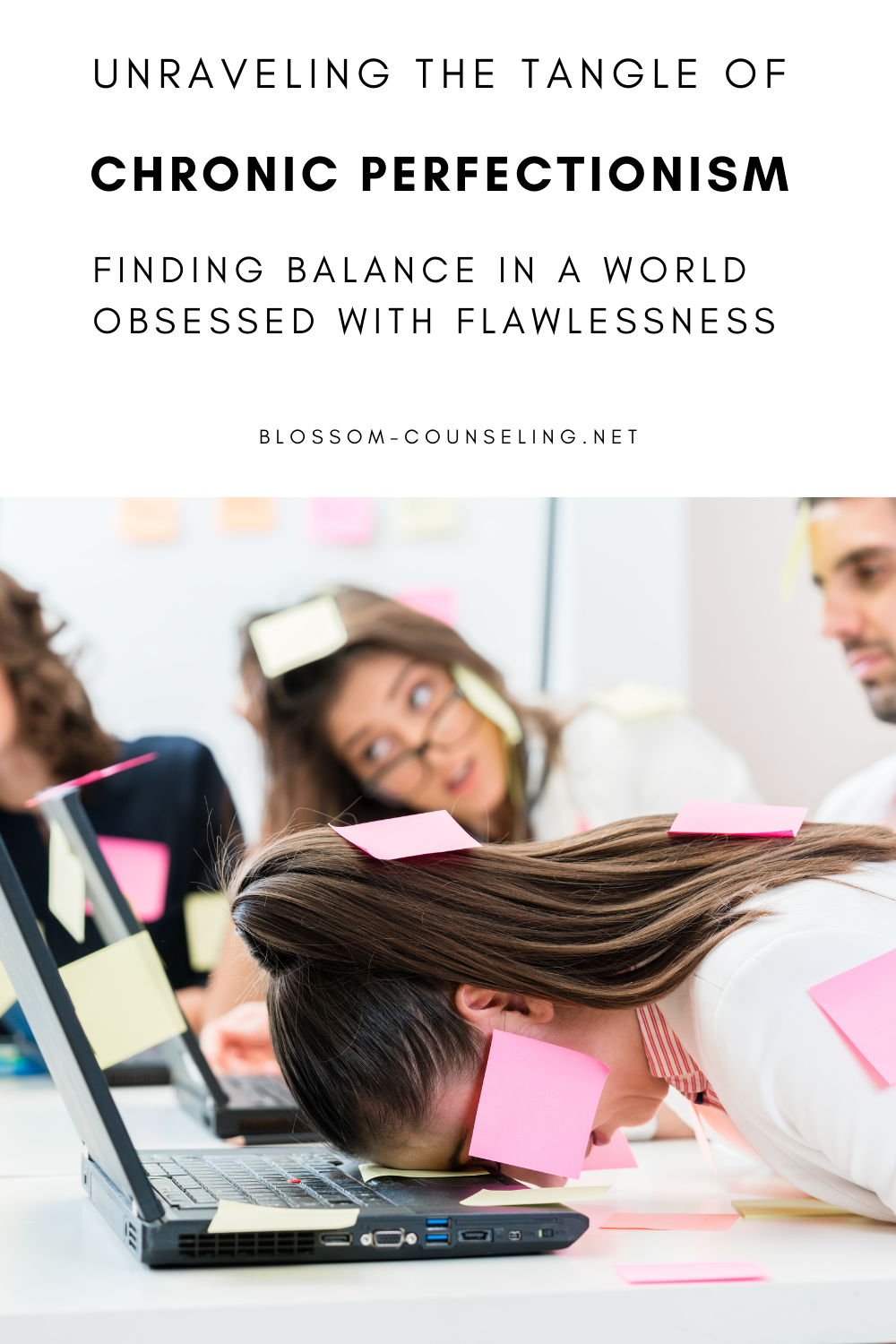
In an era dominated by Instagram filters and the relentless pursuit of LinkedIn accolades, the quest for perfection has seeped into the crevices of our daily lives, transforming from a motivating drive into a shadow that looms over us—chronic perfectionism. It’s a term we toss around, often lightly, but its grip on our well-being can be anything but.
Chronic perfectionism is the high-achieving sibling in the family of coping mechanisms; it’s ambitious, polished, and always striving for just a bit more. However, beneath its glossy exterior, it harbors a relentless pressure to perform, an insidious fear of failure, and a constant, nagging doubt that what we do will never be quite good enough. This quest for unattainable excellence can lead to stress, anxiety, and a host of other mental health challenges.
The Perfectionism Paradox
The paradox of perfectionism lies in its double-edged sword. On one side, it propels us forward, inspiring innovation and excellence. On the flip side, it can spiral into a cycle of self-doubt and procrastination. When the fear of making mistakes becomes paralyzing, perfectionism shifts from being a healthy motivator to a destructive tyrant.
Consider the college student spending countless hours poring over a single paragraph to ensure it’s flawless, or the employee who stays late every night, long after their coworkers have logged off, triple-checking every email for potential errors. These scenarios highlight the darker, more consuming aspects of perfectionism that can stifle productivity and creativity.
The Roots of Perfectionism
Understanding the roots of chronic perfectionism is akin to untangling a complex web. It often stems from a combination of genetic predispositions, family dynamics, cultural expectations, and personal experiences. The common thread? A deep-seated belief that our worth is measured by our achievements and that any mistake is a reflection of our inadequacy.
Social media has thrown gasoline on the flames of perfectionism by offering a constant stream of highlight reels from others’ lives, leading us to unfair and unrealistic comparisons. It’s easy to feel as if we’re falling short when everyone else seems to be nailing it.
The Way Through
Navigating the maze of chronic perfectionism doesn’t have to be a journey you embark on alone. Here are strategies to loosen its grip and foster a healthier relationship with your ambitions:
Embrace Imperfection: Begin by challenging the notion that anything less than perfect is unacceptable. Embracing imperfection doesn’t mean settling for mediocrity; it means recognizing that mistakes are a part of growth and learning.
Set Realistic Goals: Break your larger goals into smaller, manageable tasks. This can help alleviate the pressure of feeling like every task must be executed flawlessly.
Practice Self-Compassion: Treat yourself with the same kindness and understanding you would offer a friend. Self-compassion is a powerful antidote to the self-criticism that fuels perfectionism.
Seek Support: Whether it’s confiding in friends, joining a support group, or seeking professional help, sharing your experiences can provide perspective and validation.
Limit Social Media Consumption: Be mindful of the time you spend on social media and the impact it has on your self-esteem. Remember, what you’re seeing is often a curated version of someone’s life, not the full story.
Chronic perfectionism is a complex issue, but it’s one that you can navigate with self-awareness, patience, and support. Finding balance doesn’t mean you give up on striving for excellence; it means learning to pursue your goals without sacrificing your mental health and well-being in the process. In the quest for perfection, remember that the most rewarding achievements are those that allow us to remain true to ourselves, imperfections and all.
|
|




